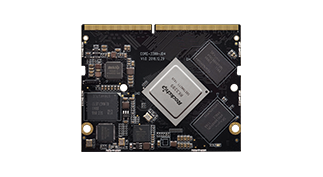Create Ubuntu root file system¶
Preparatory work¶
Download and extract ubuntu-core¶
The Core-3399-JD4 Ubuntu root file system is based on Ubuntu base 16.04. Users can go to ubuntu cdimg to download, choose to download ubuntu-base-16.04.1-base-arm64.tar.gz.
After downloading, create a temporary folder and unzip the root file system:
mkdir temp
sudo tar -xpf ubuntu-base-16.04.1-base-arm64.tar.gz -C temp
Modify the root file system¶
Preparatory¶
Preparatory network:
sudo cp -b /etc/resolv.conf temp/etc/resolv.conf
Preparatory qemu:
sudo cp /usr/bin/qemu-aarch64-static temp/usr/bin/
Enter the root file system for operation:
sudo chroot temp
Update and installation¶
Update:
apt update
apt upgrade
Install the functionality you need:
apt install vim git ....(Add as needed)
Install xubuntu
apt install xubuntu-desktop
Errors may occur:
E: Unable to locate package xxxx
Installation package source is not added to the /etc/apt/source.list, lead to can’t identify the installation package, can add source by oneself, also can use the following given source.list covered the original /etc/apt/source.list file:
# See http://help.ubuntu.com/community/UpgradeNotes for how to upgrade to
# newer versions of the distribution.
deb http://ports.ubuntu.com/ubuntu-ports/ xenial main restricted
deb-src http://ports.ubuntu.com/ubuntu-ports/ xenial main restricted
## Major bug fix updates produced after the final release of the
## distribution.
deb http://ports.ubuntu.com/ubuntu-ports/ xenial-updates main restricted
deb-src http://ports.ubuntu.com/ubuntu-ports/ xenial-updates main restricted
## Uncomment the following two lines to add software from the 'universe'
## repository.
## N.B. software from this repository is ENTIRELY UNSUPPORTED by the Ubuntu
## team. Also, please note that software in universe WILL NOT receive any
## review or updates from the Ubuntu security team.
deb http://ports.ubuntu.com/ubuntu-ports/ xenial universe
deb-src http://ports.ubuntu.com/ubuntu-ports/ xenial universe
deb http://ports.ubuntu.com/ubuntu-ports/ xenial-updates universe
deb-src http://ports.ubuntu.com/ubuntu-ports/ xenial-updates universe
## N.B. software from this repository may not have been tested as
## extensively as that contained in the main release, although it includes
## newer versions of some applications which may provide useful features.
## Also, please note that software in backports WILL NOT receive any review
## or updates from the Ubuntu security team.
deb http://ports.ubuntu.com/ubuntu-ports/ xenial-backports main restricted
deb-src http://ports.ubuntu.com/ubuntu-ports/ xenial-backports main restricted
deb http://ports.ubuntu.com/ubuntu-ports/ xenial-security main restricted
deb-src http://ports.ubuntu.com/ubuntu-ports/ xenial-security main restricted
deb http://ports.ubuntu.com/ubuntu-ports/ xenial-security universe
deb-src http://ports.ubuntu.com/ubuntu-ports/ xenial-security universe
deb http://ports.ubuntu.com/ubuntu-ports/ xenial-security multiverse
deb-src http://ports.ubuntu.com/ubuntu-ports/ xenial-security multiverse
Add user and set password¶
Add user:
useradd -s '/bin/bash' -m -G adm,sudo firefly
Set the password for user:
passwd firefly
Set the password for root:
passwd root
Modify your root file system can exit:
exit
Make the root file system¶
Make your own root file system, depending on the size of your root file system, and note that the count value is modified based on the size of the temp folder:
dd if=/dev/zero of=linuxroot.img bs=1M count=2048
sudo mkfs.ext4 linuxroot.img
mkdir rootfs
sudo mount linuxroot.img rootfs/
sudo cp -rfp temp/* rootfs/
sudo umount rootfs/
e2fsck -p -f linuxroot.img
resize2fs -M linuxroot.img
linuxroot.img is the final root file system image file.
